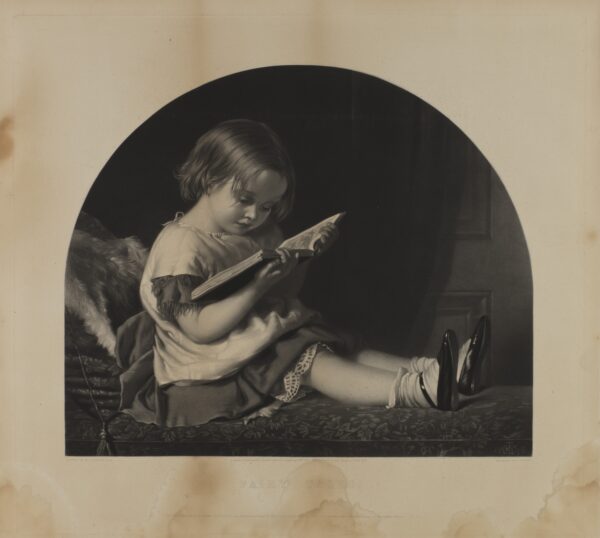Jane Austen on History Books and Learning to Read
While listening to Jane Austen’s Northanger Abbey the other day, I came upon an amusing and insightful passage about topics to which homeschooling mamas like you can relate. The passage is a conversation between the book’s heroine, Catherine Morland, her clergyman suitor Henry Tilney, and Henry’s sister, Miss Tilney. Their topics are novels, books about history, Catherine’s mother’s challenges in homeschooling Catherine’s younger siblings, and learning to read.
Since Northanger Abbey is a book in the public domain, I have copied the passage below. Because I write history and am in a family of history writers, you can imagine my amusement at Catherine’s opinion about what we do. As you know, we work very hard for students who use our history books not to feel the way Catherine does about us and our books—in other words, not to think they are tiresome and that we are making the history up!
Excerpt from Northanger Abbey:
[While discussing novels, Miss Tilney asked Catherine], “You are fond of that kind of reading?”
[Catherine] “To say the truth, I do not much like any other.”
[Miss Tilney] “Indeed!”
[Catherine] “That is, I can read poetry and plays, and things of that sort, and do not dislike travels. But history, real solemn history, I cannot be interested in. Can you?”
[Miss Tilney] “Yes, I am fond of history.”
[Catherine] “I wish I were too. I read it a little as a duty, but it tells me nothing that does not either vex or weary me. The quarrels of popes and kings, with wars or pestilences, in every page; the men all so good for nothing, and hardly any women at all—it is very tiresome: and yet I often think it odd that it should be so dull, for a great deal of it must be invention. The speeches that are put into the heroes’ mouths, their thoughts and designs—the chief of all this must be invention, and invention is what delights me in other books.”
“Historians, you think,” said Miss Tilney, “are not happy in their flights of fancy. They display imagination without raising interest. I am fond of history—and am very well contented to take the false with the true. In the principal facts they have sources of intelligence in former histories and records, which may be as much depended on, I conclude, as anything that does not actually pass under one’s own observation; and as for the little embellishments you speak of, they are embellishments, and I like them as such. If a speech be well drawn up, I read it with pleasure, by whomsoever it may be made—and probably with much greater, if the production of Mr. Hume or Mr. Robertson, than if the genuine words of Caractacus, Agricola, or Alfred the Great.”
[Catherine] “You are fond of history! And so are [my friend] Mr. Allen and my father; and I have two brothers who do not dislike it. So many instances within my small circle of friends is remarkable! At this rate, I shall not pity the writers of history any longer. If people like to read their books, it is all very well, but to be at so much trouble in filling great volumes, which, as I used to think, nobody would willingly ever look into, to be labouring only for the torment of little boys and girls, always struck me as a hard fate; and though I know it is all very right and necessary, I have often wondered at the person’s courage that could sit down on purpose to do it.”
“That little boys and girls should be tormented,” said Henry, “is what no one at all acquainted with human nature in a civilized state can deny; but in behalf of our most distinguished historians, I must observe that they might well be offended at being supposed to have no higher aim, and that by their method and style, they are perfectly well qualified to torment readers of the most advanced reason and mature time of life. I use the verb ‘to torment,’ as I observed to be your own method, instead of ‘to instruct,’ supposing them to be now admitted as synonymous.”
[Catherine] “You think me foolish to call instruction a torment, but if you had been as much used as myself to hear poor little children first learning their letters and then learning to spell, if you had ever seen how stupid they can be for a whole morning together, and how tired my poor mother is at the end of it, as I am in the habit of seeing almost every day of my life at home, you would allow that to torment and to instruct might sometimes be used as synonymous words.”
[Henry] “Very probably. But historians are not accountable for the difficulty of learning to read; and even you yourself, who do not altogether seem particularly friendly to very severe, very intense application, may perhaps be brought to acknowledge that it is very well worth-while to be tormented for two or three years of one’s life, for the sake of being able to read all the rest of it. Consider—if reading had not been taught, [novel writer] Mrs. Radcliffe would have written in vain—or perhaps might not have written at all.”

Thank you for hanging in there and teaching your children even in those times that they seem to think that “to torment” and “to instruct” are synonyms.
Heed instruction and be wise,
And do not neglect it.
Proverbs 8:33

